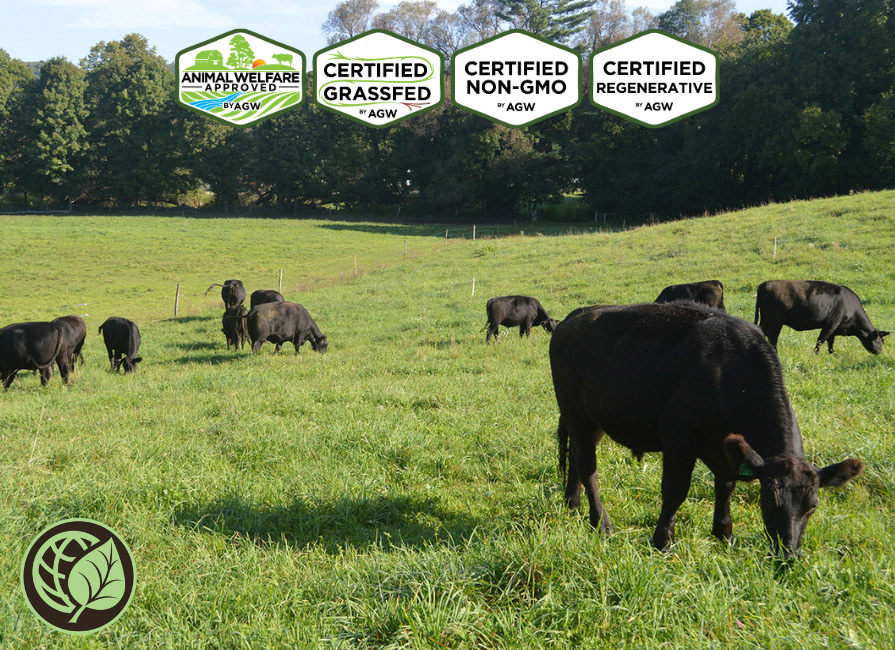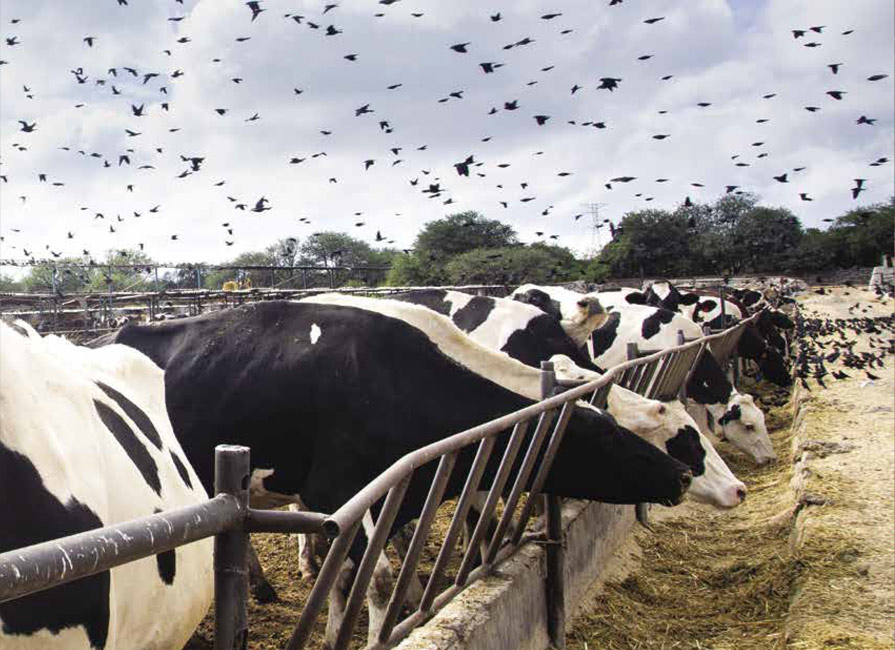One of the key attractions of our Certified Regenerative by AGW program is its practical…
Human Milk From Cows? Really?
Cows Modified Using Human DNA to Produce Human Milk Is Bad Enough – But How Would It Be Labeled?
 News is breaking that Chinese scientists have created genetically modified (GM) cattle using human genes to produce “human-like” milk in a bid to make cow’s milk more nutritious. The intention is to produce it on an industrial scale to replace formula milk and breast milk, when normal breast feeding is either not possible or undesirable.
News is breaking that Chinese scientists have created genetically modified (GM) cattle using human genes to produce “human-like” milk in a bid to make cow’s milk more nutritious. The intention is to produce it on an industrial scale to replace formula milk and breast milk, when normal breast feeding is either not possible or undesirable.
The Telegraph newspaper reports that scientists at the State Key Laboratories for AgroBiotechnology at the China Agricultural University have successfully introduced human genes into 300 dairy cows to produce what they call “human-like” cow milk. It is well known that human breast milk contains key nutrients that can help to boost the immune system of babies and reduce the risk of infections. The scientists wanted to find a way to produce an alternative to human breast milk and formula milk on an industrial scale, with the eventual aim of getting this GM “human-like” cow’s milk on supermarket shelves.
The researchers used both cloning and GM technology to introduce human genes into the DNA of Holstein dairy cows before the GM embryos were implanted into surrogate cows. Professor Ning Li, the scientist who led the research, claims that the GM milk would be as safe to drink as milk from ordinary dairy cows and that the cloned GM animals are physically identical to ordinary cows.
Yet we also know from the original research paper that only 24 of the original 37 GM calves that were produced during the experiment survived for more than six months. Seven of these calves died within hours of birth (most with gastrointestinal disease) and six died within six months of birth. The cause? Cloning technology used in such GM research “can affect the development and survival of cloned animals, although the exact reason why is not well understood,” says the Telegraph article. Fills you with real confidence about the safety of the process – and the end product – doesn’t it?
We already know that cloning has a far lower success rate when compared to natural breeding or other managed breeding techniques. But as this research shows, cloning also has serious implications for animal welfare. Most cloned animals die during pregnancy and a significant proportion of those who do survive die during or shortly after birth from cardiovascular failure, respiratory problems, liver or kidney failure, immune deficiencies, or musculoskeletal abnormalities. While the scientists admit that the reasons are “not well understood,” we know that these problems appear in all species that have been cloned.
Perhaps more troubling is that some abnormalities from cloning may not even show up until later in life. A recent World Organization for Animal Health report states that the development of musculoskeletal problems such as chronic lameness “emphasizes the point that any underlying frailties in cloned animals may not be fully revealed until the animals are stressed in some manner.” The European Commission has recently proposed a five-year moratorium on animal cloning on welfare and ethical grounds. EU advisors concluded that, “considering the current level of suffering and health problems of surrogate dams and animal clones,” there is no justification for cloning animals for food production purposes.
And where are the extensive clinical trials to back up Professor Li’s assurances that this GM “human-like” cow milk is as safe to drink as milk from ordinary cows? The Telegraph article states that “Scientists insist genetically modified foods are unlikely to pose a threat to food safety and in the United States consumers have been eating genetically modified foods for more [sic] decades.” Yet no clinical trials have ever been undertaken to prove the safety of this GM milk. In fact, no long term independent clinical food safety trials have been undertaken for any GM product. The GM company patents make sure of that.
So the fact that the U.S. population has been unwittingly used as guinea pigs for a GM food experiment over the last two decades is now being used to nullify any food safety concerns people might have about GM products. Is it just me or does this make your blood boil?
The long term health effects of GM foods could take decades to surface, just as it took decades for people to accept the damaging effects of smoking or trans-fats. While people might not be dropping dead from eating GM products, we don’t know about the potential long term health impacts of GM food, such as emerging allergies or other nutritional problems, because no one is carrying out any monitoring.
Whenever I hear claims about the inherent “safety” of GM foods I am always reminded of a statement made by Phil Angell in 1998, who was Monsanto’s director of communications at that time. Angell said: “Monsanto should not have to vouchsafe the safety of biotech food. Our interest is in selling as much of it as possible. Assuring its safety is the FDA’s job.” Yet the reality is that the U.S. Food and Drug Administration’s (FDA) decision to approve GM crops is based entirely on safety research conducted by the very company which created it – and which stands to profit from its sale.
Even more troubling is the fact that the biotech industry actively uses intellectual property rights laws to prevent truly independent scientific testing of its GM products. In February 2009, more than 25 leading scientists – all working at public research institutions located in 16 corn producing states – issued a public statement to the U.S. Environmental Protection Agency, claiming that: “As a result of restricted access, no truly independent research can be legally conducted on many critical questions regarding the technology.”
Now here’s some food for thought: In 2008, the FDA approved the consumption of meat and milk from cloned animals and their offspring. The FDA’s report stated that cloned animals (and their milk) are “as safe to eat as food from conventionally bred animals.” Subsequently, there is no actual legal requirement for the meat and milk from cloned animals (or their offspring) to be labeled as such.
We also already know that U.S. food producers are not required to label any food as containing GM products.
So putting aside any animal welfare or food safety concerns that we might have with the production of this “human-like” milk – or the ethical concerns about the use of human DNA to create commercial “pharm animals,” under current U.S. government regulations, this product could end up on the infant formula shelves unidentified as either GM or from cloned animals. This sort of deceptive marketing–brought to you from the laboratories of Big Ag to your baby’s delicate stomach–could quite possibly have serious unintended consequences. I know my grandchildren won’t have any of it.


